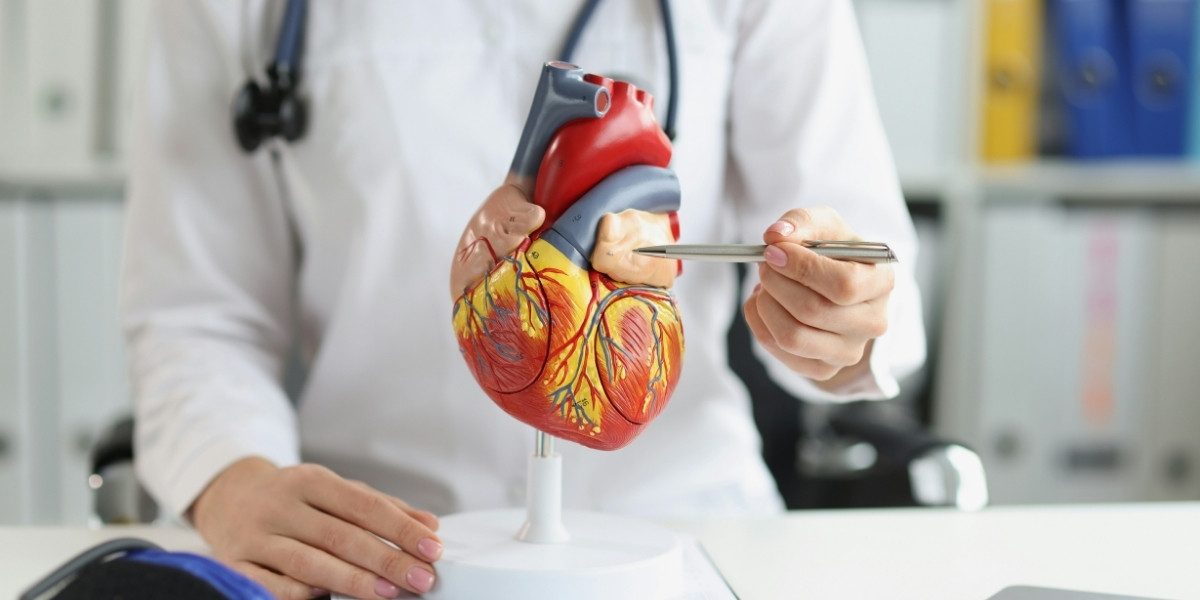Cardiologists play a vital role in protecting one of the most important organs in the human body — the heart. These specialists are trained to detect, treat, and help prevent a wide range of cardiovascular issues. Their expertise goes far beyond heart attacks or emergency cases. They provide long-term strategies that help people live healthier lives, often by addressing problems before they escalate.
Many people delay seeing a cardiologist until symptoms appear. By then, the heart may already be under stress. Understanding the value of early intervention can help reduce complications and promote a healthier lifestyle. A cardiologist doesn’t just treat disease — they help you manage your heart’s health in a changing world.
Read Also: Acupuncture in Miami: Science, Philosophy, and Effective Therapy at AestheteMed
What Does a Cardiologist Really Do Day to Day?
A typical day for a cardiologist involves more than reading test results or prescribing medications. They listen. They examine symptoms that seem minor at first — fatigue, mild chest discomfort, occasional shortness of breath — and look deeper.
Tests such as electrocardiograms, echocardiograms, and cardiac stress tests are commonly used to understand how the heart is functioning. These tools allow the cardiologist to detect irregularities in rhythm, signs of blockages, or weakened muscle function. Even something as simple as an abnormal heart sound during a routine check-up can prompt a closer look, potentially revealing serious underlying conditions.
They also coordinate care. Many heart-related issues overlap with other conditions such as diabetes or kidney problems. Cardiologists often collaborate with general practitioners, endocrinologists, and other specialists to create well-rounded treatment plans that go beyond a single organ.
When Should You Actually See a Cardiologist?
The heart doesn’t always give clear warnings. Symptoms like dizziness, tightness in the chest, or even an unusual level of tiredness can be the first indicators that something isn’t quite right. People often dismiss these signs until they become severe.
A cardiologist should be consulted if you have a family history of heart disease. Genetics can play a significant role in your cardiovascular risk profile. Even if you feel healthy, your risk might still be elevated due to inherited conditions like high cholesterol or hypertension.
Those who smoke, lead sedentary lives, or maintain poor dietary habits should also consider regular visits. These factors, over time, strain the cardiovascular system and can lead to silent but serious damage. If your primary doctor notes elevated blood pressure, irregular heart rate, or other signs of risk, a referral to a cardiologist might be the best next step.
Why Prevention Beats Crisis Care
One of the greatest strengths of modern cardiology lies in prevention. Cardiologists help patients manage the early stages of cardiovascular disease before it requires surgical intervention. They guide patients through medication management, physical activity recommendations, and lifestyle changes that can reduce long-term risks.
Preventive care includes identifying early-stage arterial plaque, monitoring cholesterol trends, and managing conditions like atrial fibrillation — which may not produce symptoms until a more severe event, such as a stroke, occurs. By regularly monitoring heart health markers, cardiologists can adapt treatment plans quickly if changes are detected.
What Are the Most Common Conditions Cardiologists Treat?
Cardiologists frequently deal with conditions like coronary artery disease, congestive heart failure, and arrhythmias. Each of these requires a specific approach.
In coronary artery disease, the focus may be on improving blood flow through medications or procedures. With heart failure, treatment often revolves around managing fluid retention, controlling blood pressure, and improving heart efficiency through medication. Arrhythmias — irregular heartbeats — can be harmless or life-threatening, and cardiologists use monitoring tools to determine the severity and prescribe the correct course of action.
They also diagnose conditions related to heart valves or congenital abnormalities. These may require referrals to cardiac surgeons or intervention through minimally invasive techniques like stent placement.
How Lifestyle Plays a Central Role in Heart Health
Lifestyle is the foundation of cardiovascular wellness. A cardiologist will often emphasize the importance of diet, exercise, sleep, and stress management. Even with the best medications, without healthy habits, results tend to fall short.
A heart-healthy diet emphasizes fiber, lean protein, and unsaturated fats. Reducing salt and avoiding processed foods can help regulate blood pressure. Simple activities like walking daily or practicing yoga can lower stress and strengthen the heart.
Stress itself is a major factor in cardiovascular health. Chronic tension increases the likelihood of hypertension and raises stress hormones that place extra pressure on the heart. Cardiologists often recommend mental health support alongside physical care.
The Growing Role of Technology in Cardiology
Digital tools have significantly changed how cardiologists monitor and manage patient care. Wearable devices now provide real-time insights into heart rate, rhythm, and activity levels. These tools allow patients to participate actively in their own health while providing doctors with valuable long-term data.
Remote monitoring has expanded access to cardiac care for people living in rural or underserved areas. A cardiologist can now review a patient’s heart rhythm from miles away and make recommendations that previously required in-person visits.
Telehealth has become an essential tool for maintaining regular contact, offering follow-up care, adjusting medications, or addressing sudden changes in symptoms.
What to Expect During Your First Visit to a Cardiologist
Visiting a cardiologist for the first time can feel intimidating, but it usually begins with a conversation. The doctor will ask about your symptoms, personal and family history, lifestyle habits, and any medications you’re taking.
You may undergo basic tests such as an ECG or have your blood pressure monitored in different positions. Based on this information, the cardiologist might request further imaging or blood work, but the immediate goal is understanding your baseline heart health.
The visit ends with a plan. That may involve more testing, medication, or simple changes to daily routines. Most importantly, the appointment provides clarity — something many people need when facing uncertainty about their heart.
Why Waiting Is Riskier Than Acting Early
Heart disease remains one of the leading causes of death worldwide. But the majority of serious heart events are preventable with early action. Seeing a cardiologist isn’t only for those who feel ill — it’s a wise step for anyone with risk factors or a desire to age with vitality.
Delaying care allows silent conditions to progress. On the other hand, early detection can give you years — or decades — of added quality to your life.
Read Also: Brick-and-Mortar Retail: Quiet Innovation Driving Change
Prioritizing Heart Health
A cardiologist offers more than medical expertise. They offer a partnership in health. From high-performance athletes to individuals with complex health histories, everyone benefits from clearer insight into how their heart works and what it needs.
Making that first appointment can be the start of a lifelong habit: listening to your body, asking the right questions, and staying informed. In the end, your heart’s future depends on the actions you take today.








